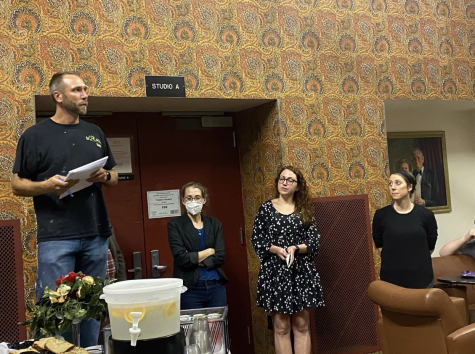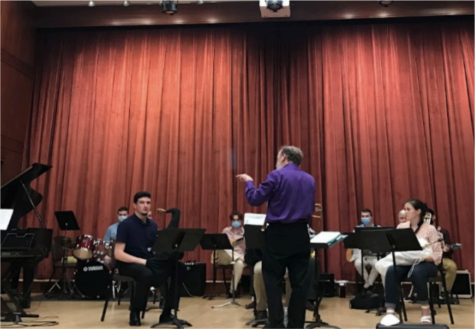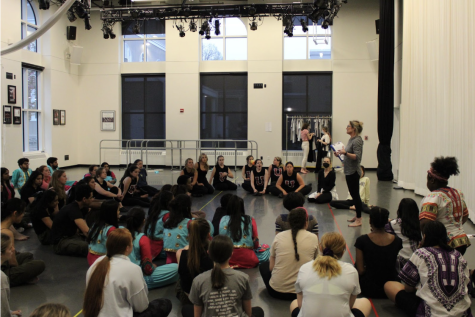Student weighs in on the Mountebanks musical “Godspell”
April 18, 2019
As the title implies, “Godspell” is an enchanting story about God, which is spellbinding from beginning to end. Of all the stories within the Bible, the play follows the journey of the disciples from baptism on through the ultimate and final betrayal of Jesus by Judas. Such hallowed stories must be appropriately executed regardless of the medium. Any failure to give biblical allegories a just retelling will undoubtedly anger a massive portion of the population, so when retelling it with a twentieth century flair, as was done in the original “Godspell” production, it must be done right and right the first time.
Remarkably, as was done in the original production in 1970, and in 2019, with the direction of Director Carly Ristaino ’20, the cast the Mountebanks’ rendition of this iconic musical does just that. As with all recreations of famous plays by different directors, liberties will be taken and interpretations will be made. What Ristaino has done is integrate a beautifully anxious style of acting to a musical which can easily come across as morose in tone. She did this by playing to her cast’s strengths. The role of Jesus, played by Dan Schratz ’22 brought an immense level of gravity and unobstructed thought to an otherwise lighthearted play. That lightheartedness was not poorly recepted, however; the disciples of Jesus, collectively referred to as “company,” were a bouncy foil with almost childlike innocence, to the frank Gospel of Jesus and his closest aids John the Baptist and Judas, played by Jason Stack ’21.
These two characters in particular added a level of complexity to the storyline for they are, as any former Sunday school attendee will tell you, as diametrically opposed in the storytelling of the Bible as any two can be. This complexity is only furthered by the fact that both roles were played by a lone individual.
Such characters being played by a single person causes an onstage tension, elevating the overall telling of this great story. This tension stemmed from the characters themselves; one moment he would be joyfully interacting with the company, baptizing them with a small water pistol, and the next moment he would be starkly proclaiming the impending damnation of man. In this way, the roles of John and Judas were able to foil not just Jesus and the company, but themselves. Such an intricate performance is not an easy one to pull off, but just as the play’s subject was, these roles were effective in their execution. That being said, as important as the roles of Jesus, John the Baptist and Judas are to this play, they would be nothing without the immense support provided to them by the company. It is the company that provides the slapstick bit humor and a great deal of the vocals and singing, essential to the delivery of this musical.
If at any point an audience member had begun to grow weary of the intense dialogue of Jesus, John or Judas, they would be relieved of such feelings before the weary had a chance to set. This was perhaps the musical’s greatest asset. The actors and the characters they portrayed complemented each other to such a degree that it almost seemed natural, like the actors had always been their characters and the company had been with each other for a period of time far longer than that in which they had to prepare for the production. As for our director, her ability to draw the most from her cast is abundantly apparent in such a musical, and should be regarded as quite the feather in her cap.












